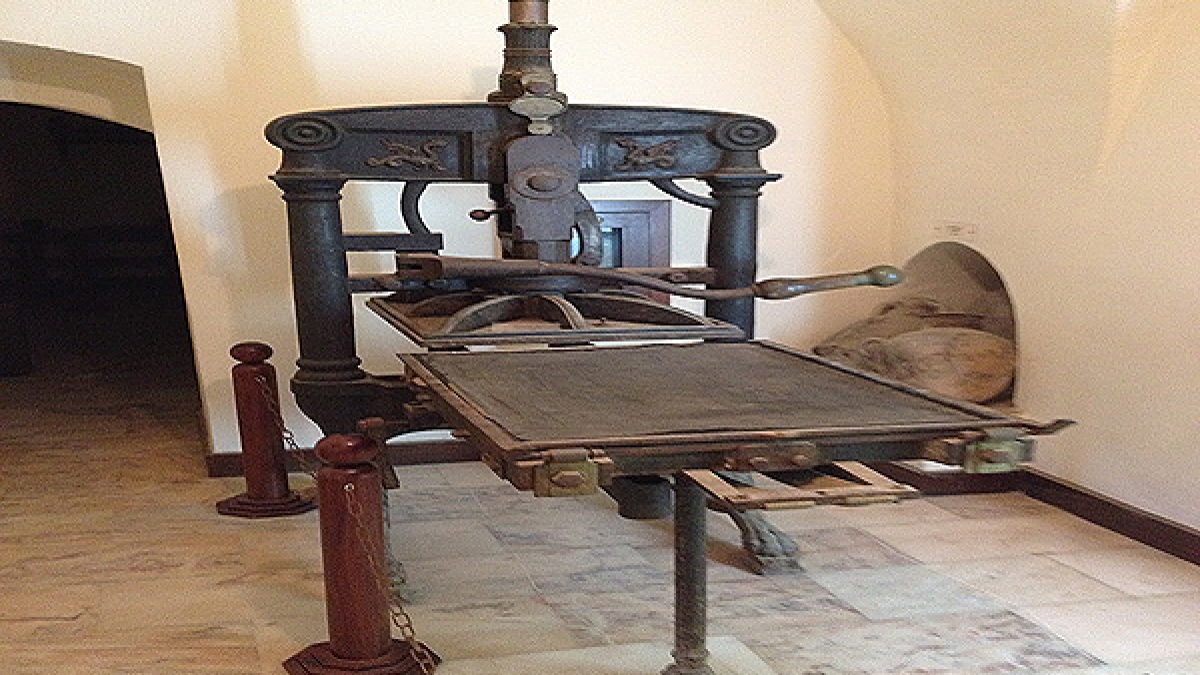Renaissance of Faith

About 700 years ago, representatives of the Abbasid Khilafah in Baghdad were introduced to a new device.
Some of the officials had read about this new device, others had heard about it through rumor or through discussions with ambassadors from the great states of the Mongol Horde. None of them had actually seen the printing press, but, when they did see it, they were skeptical.
The Abbasid officials, and the Ottoman judges who came after them, would not allow the Holy Quran to be replicated through the technology which had come to them - long before it ever reached Europe. The officials claimed that the Quran should be copied only using handwritten script and that its pages should not be 'desecrated' by greasy steel machines.
Two hundred years later, Guttenberg made sure that the first book he printed was the bible. Although he was criticized like many scientists of his age, Guttenberg realized what printing could do: the mass distribution of books and literature, and along with it, global dissemination of European culture and values.
Had the Khilafah taken the initiative when it had a chance, Muslims would have had a 200 year head start in printing and distributing the Quran, and other literature which espoused Islamic values. The effects of such moves are difficult to fathom: instead of an anti-religious Renaissance, there may have been an Islamic enlightenment in Europe. And, instead of centuries of colonial oppression, there may have been a golden age of Islamically inspired peace and tolerance throughout the world.
Today, we the Muslims are presented with an opportunity very similar to that which was presented to the Abbassid and Ottoman officials; we are presented with the opportunity of using the Internet - a tool that is changing the world. This new super media need not be under Muslim control. Nor does it have to be built around Muslim laws; both of these matters are a shared responsibility of humanity and every soul is responsible for its own actions.
However, it is our duty as Muslims to carve out a prominent position for Islam on the Internet. With more than 500 million people using this medium as prime source of information, we cannot afford to ignore what is rapidly becoming the most important source of communications in the modern world.
Alhamdulillah, there have been many good efforts by Muslims to use the Internet. Notwithstanding, we remain far behind. The Internet was not introduced in Saudi Arabia, the home of Mecca and Medina, until 1997. It was not introduced in Syria, home of the Ummayad Khilafah, until last year - and, believe it or not, the Internet has not yet been introduced on a large scale in Iraq, home of Baghdad, once and the world's premier center of scientific learning. Only 42% of Muslims are literate; even fewer understand the importance of the Internet. This is a disturbing phenomenon.
Collectively we must not only be concerned toward this disturbing phenomenon but strive to resolve it, InshaAllah.
Related Suggestions

















